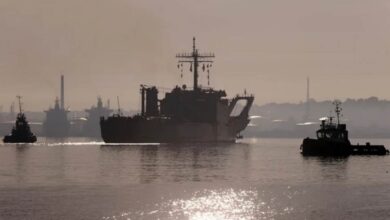Pope Francis: Latin America is hope
The region has taken on importance not only by the number of adherents to the church but by what constitutes and shows to the world

Lee en Español: Papa Francisco: Latinoamérica como esperanza
Latin America has historically been a stronghold of the Catholic Church, home of about 40% of the world’s Catholic faithful. But in the same way the Catholic faith has been reduced in the last decades as a result of the increase of atheists, agnostics or Pentecostals. Although during most of the twentieth century 90% Latin Americans were Catholics, that percentage now hardly reaches 70% and is expected to continue to decline.
The Catholic Church has always sought to be present in the resolution of conflicts, which, due to different motivations, affect social life and still further affect the values proclaimed by the Catholic Church, helping the neighbor and the pursuit of the common good. But the reformist figure of the church has been reinforced with the arrival of Pope Francis, who has given a new air to his mediation in the international order, especially in Latin America, with his accurate diplomacy in cases like Cuba and the United States. and the peace process in Colombia.
“Politics is one of the highest forms of charity, because it is to serve the common good,” Francisco said months after being made Pope in 2013, a phrase that has somehow marked his pontificate, and which has certainly been become his strongest muscle. Francis has been able to leave aside that religious sphere that was thought necessary in the acting of a pontiff of the catholic church, to be involved in infinity of subjects. Francis with his political agenda has managed to reach more people and not only Catholics.
The Pope is very important because he has strongly denounced the horrors of misery, inequality and cannibalism of economic models. And for Latin America is the opportunity to have a more relevant presence in the international system. Andrew Chesnut, an expert on Latin American Religion and professor at the University of Virginia Commonwealth, says: “Pope Francis, apart from the changes he has been pushing from within the church, has brought the marginalized to the center of attention. It is no longer just Europe and North America who rule the world, it has made the world turn its eyes to those who have always been there and suffer many overwhelming, but have been ignored”.
Ever since taking over as top Catholic leader, Francis has insisted that the Church should resume her evangelizing mission and work in the light of justice and the dignity of the human being, for which he sees in young people the opportunity to give a new air to the church. Latin America has been its cradle for this mission, first it did in the World Youth Day in Brazil, and then in its different visits to Latin America, in which it has not scheduled its native country, Argentina, for personal reasons as it is to have to leave again its place of origin when making an official visit.
Brazil, Mexico, Colombia and Argentina add a significant number of followers to the Catholic Church and only with the exception of Argentina, they have already received the visit of the supreme pontiff. Ecuador, Bolivia, Paraguay and soon Chile and Peru have also been part of the Pope’s agenda, which sees in the Latin American subcontinent a new hope. Central America has also been included in its papal travels, including Cuba and the United States, but beyond where the pope has gone, Latin America feels that finally a Catholic hierarch has brought the church back to the continent.
For Francis, his message has filled in a very well manner with an audience that, although demographically diverse, remains submissive to the values it represents, says Chesnut. The Latin American presidents announce loudly the visit of the supreme pontiff, and Catholic faithful receive this news in the same way, “lit is like when there is a family reunion,” says Chesnut. The American continent has been a priority in the pontificate of Francis, and has not been because it was his birthplace and place of origin, but – as he does at every opportunity he can – he sees the potential that has as a region both in religious terms, as in social terms.
Latin America has received this task in an adequate manner, because it has managed to captivate with fervor the look not only of the pope, but of the world catholic church. The percentage of Catholics in Latin America is relevant – even in the decline it presents – but for Francis it is even more relevant that the continent has the capacity to receive the message and its readiness to apply it in everyday life. In 2018, Francisco returns to Latin America and surely the world will continue this visit, and again the message will be deep and reach every corner of the planet, since religion no longer matters, what really prevails today is the search for common good.
Latin American Post | Carlos Eduardo Gómez Avella





